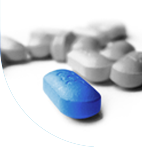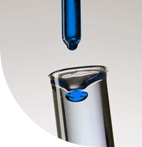INTUITY often acts before courts (commercial, civil or administrative) to defend its clients’ interests:
- unfair competition,
- commercial disputes,
- contractual breaches;
- ligations regarding Marketing authorizations’ validity;
The Firms also developed an expertise in arbitration.
Contacts :
Christophe Hénin :
RECENT WORK :
- The Firm assisted Ipsen Pharma in an unfair competition litigation, against the leader generics manufacturer, Mylan. Mylan launched an original product with therapeutic indications identical to that of a product of Ipsen Pharma. The latter challenged the generic company for having communicated with pharmacists, at the launch of the product, by suggesting this was a generic of the originator product. It also accused the laboratory for having implemented unfair trade practices, by encouraging pharmacists, on the one hand, to violate regulatory provisions governing prices and margins of reimbursable drugs and, on the other hand, to engage in an active substitution of prescription of the first product to the benefit of the second one.The Paris Court of Appeal condemned the generic manufacturer to pay 17 million euros as damages for these acts of unfair competition. The French Supreme Court recently upheld the ruling.
- INTUITY acts for several clients, from the human or animal health sector whose advertisings are challenged by their competitors on the grounds that the advertisings would not comply both with positive legal provisions regulations and guidelines issued by the competent authorities.
- Several competitors seized courts in order to obtain the invalidation of some of the client’s Mas. INTUITY defended the interests of its client both in the emergency procedures and against the actions based on the merits.In one of the cases, INTUITY obtained that the French judges ruled that the EMA (European Medicine Agency) Guidelines on the investigation of Bioequivalence is not legally binding for pharmaceutical companies but only consist in recommendations. As a consequence, the fact that bioequivalence studies would have been conducted without having followed, to the letter, each point of the guidelines would not be sufficient to constitute per se a patent error in the assessment of bioequivalence.This ruling has been appealed but the appellant dropped its claims before the Court of Appeal.



















